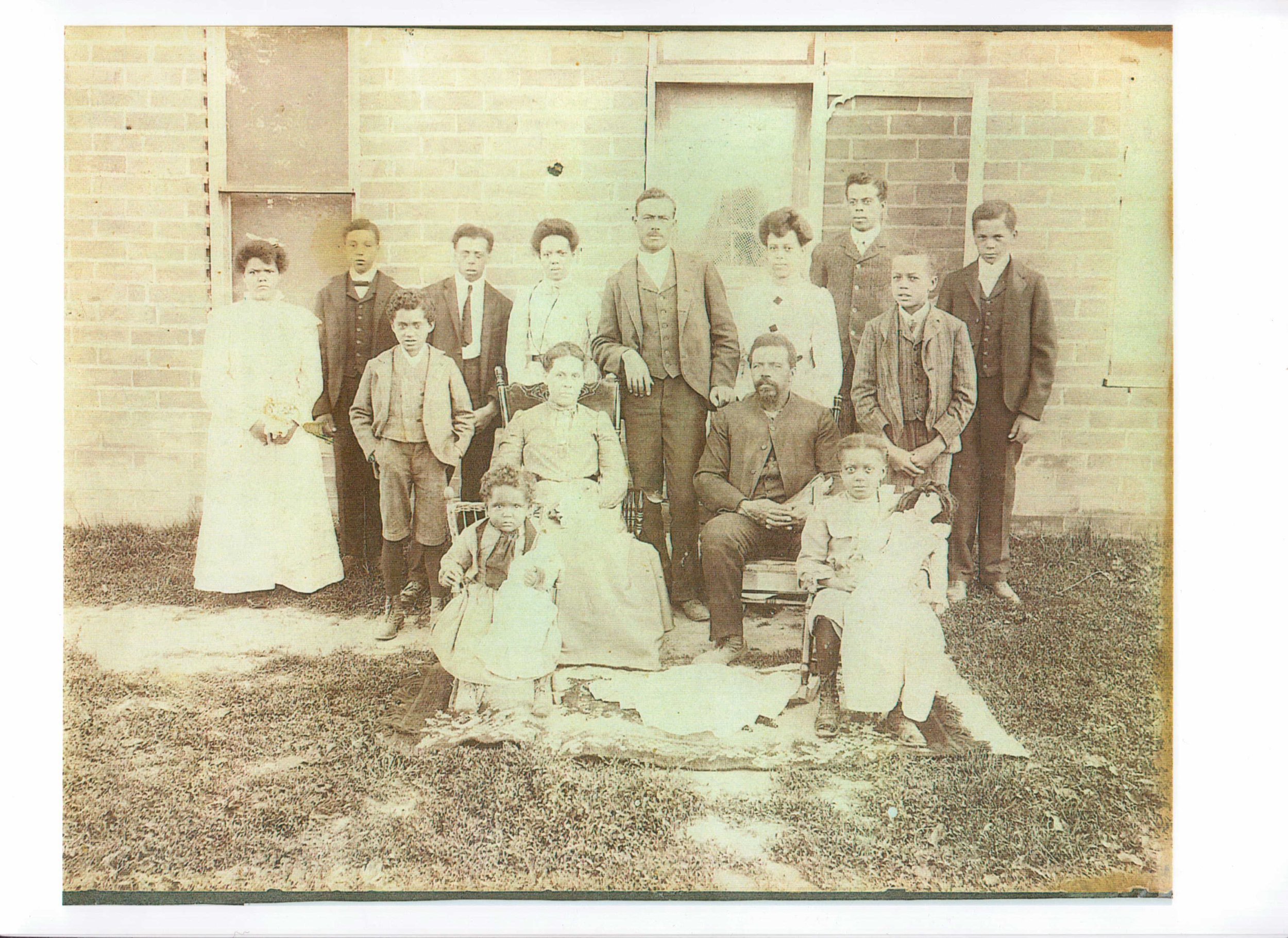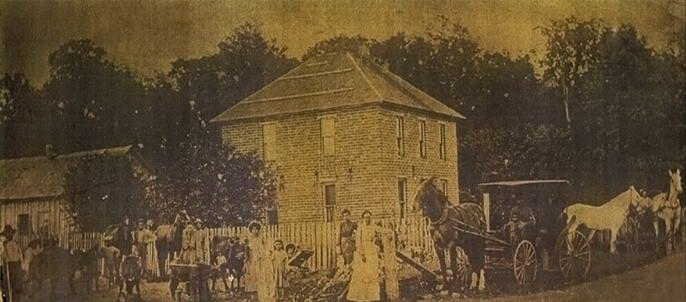At the Core of Who We Are: The Family
Family Reunion
To know where you’re going, you must first understand where you come from.
The Black family—the idea of it, the reality of it, the strength of it—has been under siege since before our feet ever touched this soil. The world tried to erase us as individuals, to sever the roots of our families, and yet, in defiance, we survived. Not as fractured pieces but as a people bound together by something deeper—the covenant of family.
It is this truth that keeps me coming back, that compels me to sift through worn records and fading photographs, to trace our lines across generations. I collect the names, the dates, the births, the marriages, and the passings because these are more than facts on a page. They are evidence of who we are and who we were—a people who built their lives, their futures, and their legacies on one sacred truth: the needs of The Family come before all else.
Cunningham Reed Family
At the center of our family’s story stands our founding matriarch, Mary Finley Reed Cunningham. She lost her husband, Charles Reed, Sr., in the first year of their only son’s life. Charles Reed, Jr. would have been a boy raised without a father—but Mary chose to build a family, not in sorrow, but in determination. She remarried Richard Cunningham, a man who had freed himself from enslavement. Together, they brought 12 children into this world, and Richard did something that speaks louder than words: he raised Charles Reed, Jr. as his own. Alongside his 12 younger siblings, Charles grew under Richard’s care as both father and provider.
“Some people want to look like a family. Some people want to feel like a family. And some people do what is necessary to be a family.”
I see it in the stories of those who came before us—those who chose the collective over the self, those who built homes so the next generation could stand taller, those who understood that their sacrifices were not losses but seeds.
At the core of our history is The Family.
Stories from the Land and the Friends
Cuningham Family Farm
I often think about the time our family spent among the Quakers—the Friends, as they called themselves—in the quiet expanses of Russiaville, New London and Noblesville, Indiana. This was not happenstance. The Friends offered a safe harbor in a storm that began before our ancestors were born and raged long after they passed. There was something about their way of life—a deep reverence for community, a radical commitment to simplicity, and an understanding that the individual is but a part of the whole—that left its mark on us.
In their midst, our people were reminded that family was not a loose association of individuals but a singular entity, a living body made stronger when its parts act as one. These lessons became part of us, woven into the fabric of our identity. And though we would later scatter—marrying out, moving on—those lessons endured.
But enduring is not the same as thriving. The further we have moved from our land, our roots, and our traditions, the more we have become a family reshaped by other ideas, other cultures, other ways of being. The collective has weakened, and the self has been raised as the highest ideal.
Marriage, Wealth, and Survival
I think of Dr. George Fraser’s words about marriage and wealth, about how the most prosperous communities in America are also those with the highest marriage rates. Indian Americans, Chinese Americans, White Americans—all of them understand something we once knew instinctively: that the family is an economic engine, a fortress against poverty, a foundation on which legacies are built.
We are not struggling because we are incapable. We are struggling because we have forgotten. We have forgotten that wealth is not just dollars and land but the strength of the family unit. We have forgotten that the truest form of generational wealth is the love, the unity, and the sacrifices passed down through the bloodlines. And so, I search. I dig through the archives and hold up their stories—our stories—like lanterns against the dark.
I collect and share what I find because I know these stories matter. They remind us that our ancestors understood something we must reclaim: The Family is our wealth. The Family is our legacy. The Family is our survival.
“The Family is our wealth. The Family is our legacy. The Family is our survival.”
Who We Were, Who We Are, Who We Will Be
In our family, there is no shortage of examples. There are men who labored from dawn to dusk so their children could dream. There are women who stitched together quilts of faith, courage, and tradition to wrap their children in protection. There are sacrifices so great they have no name—only gratitude.
These stories teach us that we are not just individuals floating aimlessly in time. We are the sum of generations of love, of toil, of perseverance. And yet, as we have drifted from one another—as we have moved away from our land, our traditions, and our understanding of the family—we have begun to lose our way.
But there is hope in remembering. That is why I research. That is why I document. That is why I share. Because the stories are still here, waiting to be told. The lessons are still ours to reclaim. And the family—our family—can still stand strong. We need only remember who we are, where we come from, and what we owe to each other.
We are not called to mimic other families or seek answers elsewhere. Everything we need is already here, rooted in who we were. Our founding patriarchs Charles Edward Reed, Sr. and Richard Cunningham and matriarch, Mary Finley Reed Cunningham showed us what it means to build a family on love, sacrifice, and action. Their example reminds us that we have the tools, the stories, and the spirit to continue building—not outward, but inward, with intention and purpose.
I believe that one day, our family will gather and know, without question, that The Family is not a burden but a blessing. It is our wealth, our strength, our future. And when that day comes, we will be able to look back—on the names, the stories, the sacrifices—and say, we remembered.
And in remembering, we became whole again.




